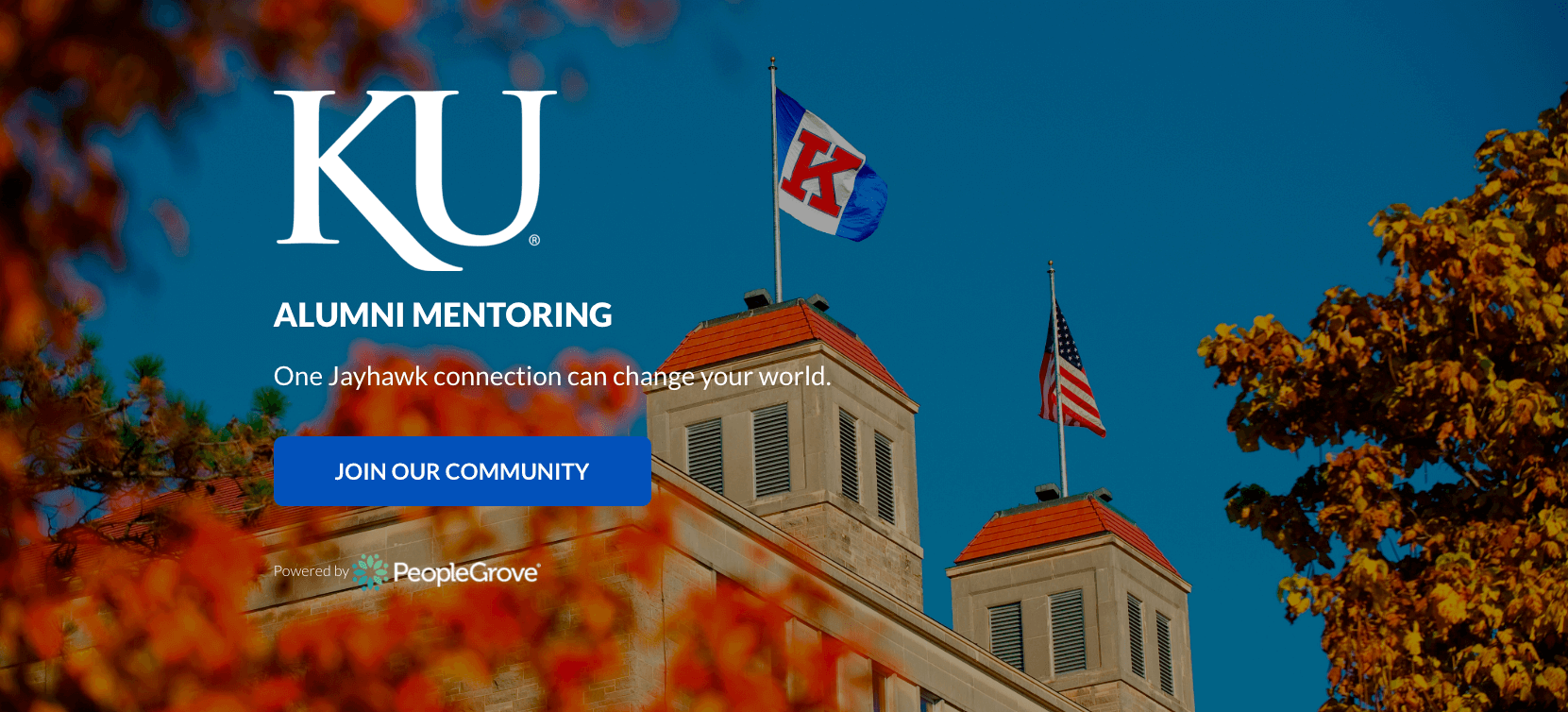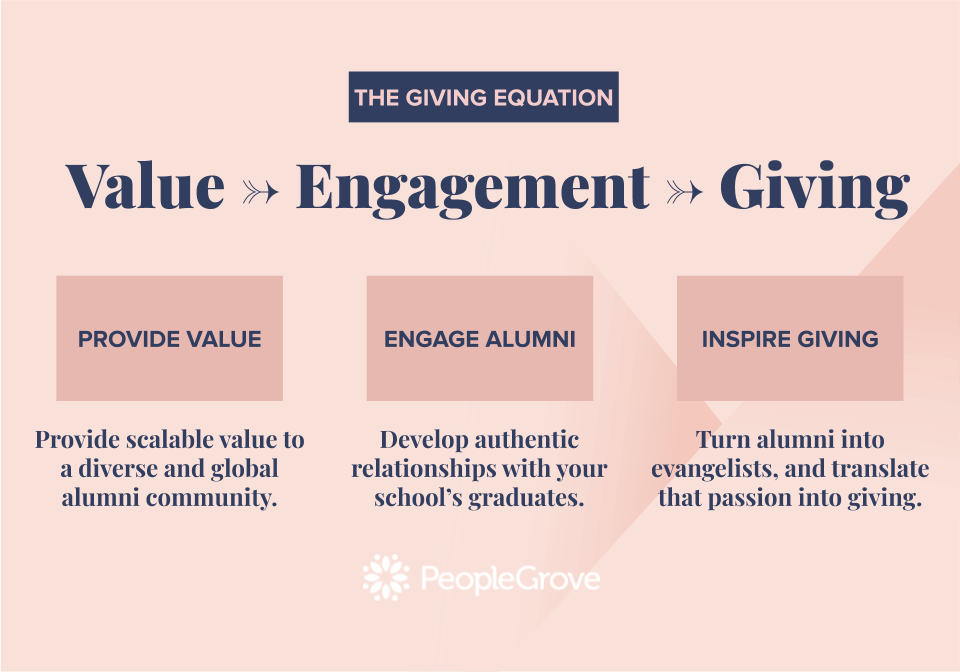Alumni & Advancement
Give the People What They Want: When Will We Finally Act on Alumni Surveys?
We kicked off our 5-part webinar series on #TheGivingEquation by hearing how universities are acting on alumni survey results and […]
Alumni & Advancement
We kicked off our 5-part webinar series on #TheGivingEquation by hearing how universities are acting on alumni survey results and […]

We kicked off our 5-part webinar series on #TheGivingEquation by hearing how universities are acting on alumni survey results and delivering lifelong value to their alumni. For the entire series, we are focusing on a simple equation to re-frame how we think about alumni engagement and university advancement:

Alumni crave career connections and the ability to capitalize on the power of the alumni network, and institutions must commit to providing them with what they value most. We chose to start the series by inviting speakers who have conducted alumni surveys and shifted their priorities based on the results.
Our speakers were:
Matt Kelly, Business Development Manager at PeopleGrove and former Associate Director of Alumni Career Services at Georgetown University, hosted the webinar. He started the discussion by polling all webinar attendees, asking them how they would describe the programming run by their alumni associations. The results showed that the programming tends to be slightly skewed toward social events over those that are educational-based.
At the University of Kansas, the alumni association has conducted three surveys over the last 10 years to learn more about how to best serve their alumni. These surveys showed that while alumni were heavily engaged in athletics and social events, they wanted more career support, particularly in the areas of networking, making connections, and searching for jobs.
At Fresno State, the alumni association conducted similar research via a brand study, focus groups, a survey, and “campus listening” sessions, all over the course of three years. Across all of the research, the alumni association found a gap in programming surrounding mentoring, networking and job hunting.
“You see and hear what other alumni associations are doing, but it doesn’t mean it’s right for your campus. We decided to take some time, do some research, and put it down on paper,” Schulz said. “Our intentional effort allowed us to move forward with greater confidence.”
The results from the surveys at Fresno State and the University of Kansas were echoed by webinar attendees: in a live poll, 93% said career assistance was one of the top services their alumni would want from their alma mater, with a mentorship program coming in second with 65%.
“Our gap analysis aligns exactly with what the poll is saying. We anticipated that we were lacking in career assistance because we were undervaluing how important it is. We didn’t make it a priority,” Laclé said. “Now that we have seen the results and have taken action, we are already making great strides.”
Laclé said she expects to see the results from their next survey reflect the positive efforts in career assistance and mentorship that they’ve implemented over the last two years.
At Fresno State, the alumni association is in the process of trying to decide what program and departmental changes they should make based on the results of their research.
“After conducting our research, we shared the results with campus — whether they were good or bad,” Schulz said. “I think because we were so open with what we found, our audience was more receptive to communicating with us when we conducted the listening tour. Having leadership open to discuss these things is a great first step.”
The University of Kansas created Laclé’s position — Assistant Vice President of the Jayhawk Career Network — as a direct result of the survey feedback.
“My role in the alumni association is to help our alumni navigate their resources,” Laclé said. “We have a lot of career resources at-the-ready, they are just really spread out. I view myself as a person that helps facilitate these connections.”
Schulz said his team is working to change the way they view activities to discover what creates the most value for alumni.
“We live in a day and age where alumni don’t need their alma mater to connect with other alumni,” Schulz said. “We cannot create value on our own; it’s co-produced. Alumni are already very engaged, we just don’t understand all of the ways they’re involved. We don’t need to create more, we need to do a better job of recognizing what is already there that we can leverage.”
Schulz and Laclé offered advice to webinar attendees, and they both agreed that understanding the structure of their institutions and making partnerships on campus has helped them in their post-survey efforts.
“Alumni want to feel included,” Glasener said. “While they can connect with students and other alumni on their own, it’s being able to put that into one space as a campus.”
The second installment of our 5-part webinar series is Wednesday, Oct. 2 at 11 am PT: “How Stale is Your Directory? A Glimpse at the Future of Personalized Connections & Building Deep Affinity” featuring Matt Kelly, Business Development Manager at PeopleGrove and former Associate Director of Alumni Career Services at Georgetown University, and Adam Saven, CEO of PeopleGrove, discussing how the PeopleGrove’s alumni success platform is setting universities up for success.